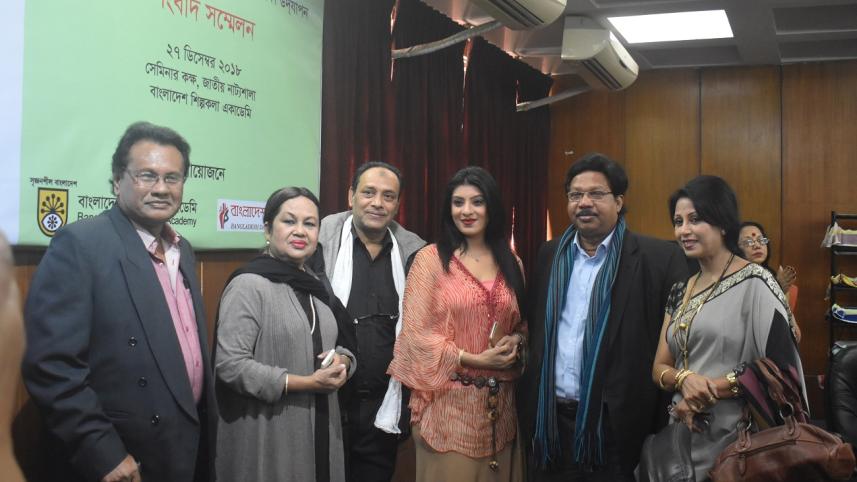Nrityacharya Bulbul Chowdhury’s birth centenary in the offing

Marking the birth centenary (January 1, 1919-2019) of Nrityacharya Bulbul Chowdhury, Bangladesh Shilpakala Academy (BSA) together with Bangladesh Nritya Shilpi Sangstha (BNSS) has chalked out yearlong elaborate programme to celebrate the pioneer of modern dance in Bangladesh.
A press conference was held yesterday at BSA in this regard. President and general secretary of BNSS Minu Haque and Mahfuzur Rahman, eminent dancer Amanul Haque were present among others at the press conference, presided over by Liaquat Ali Lucky, director General of BSA.
“We would like to celebrate and remember the timeless dancer through various activities once we inaugurate the yearlong commemorative programmes in January,” said Liaquat Ali Lucky.
The yearlong celebration will include a grand opening of the programme along with ‘Nrityacharya Bulbul Chowdhury Mela-2019, a launching of a memorial book on the dance maestro, dance festival marking International Dance Day on April 29, dance-drama festival, dance workshop, countrywide dance competition, seminar on Bulbul Chowdhury Nrityadhara, honouring renowned dancers of Bangladesh and more.
Rashid Ahmed Chowdhury (1 January 1919 – 17 May 1954; known by his stage name Bulbul Chowdhury) was a Bengali dancer of British India, and later East Pakistan. He is primarily regarded as a pioneer of modern dance in Bangladesh, as a founding figure of dance among the conservative Muslim community.
Chowdhury was born in Chunati, a village in what is now Lohagara Upazila, Chittagong, on 1 January 1919. His father, Mohammed Azamullah, was an inspector (later promoted to Deputy Superintendent of Police) in the then Bengal Police Service during British Reign. His maternal grandfather, Munshi Fazar Ali Dewan, was a lawyer of Calcutta High Court who also practiced at Chittagong. Chowdhury was home tutored in Arabic and Persian. Later he would attend the Howrah Primary School, and the Manikganj High School from where he matriculated in 1934. He earned IA from Calcutta Presidency College in 1936. He had later earned Bachelor of Arts degree from the Scottish Church College in 1938, and Master of Arts in arts from the University of Calcutta in 1943.



 For all latest news, follow The Daily Star's Google News channel.
For all latest news, follow The Daily Star's Google News channel.
Comments